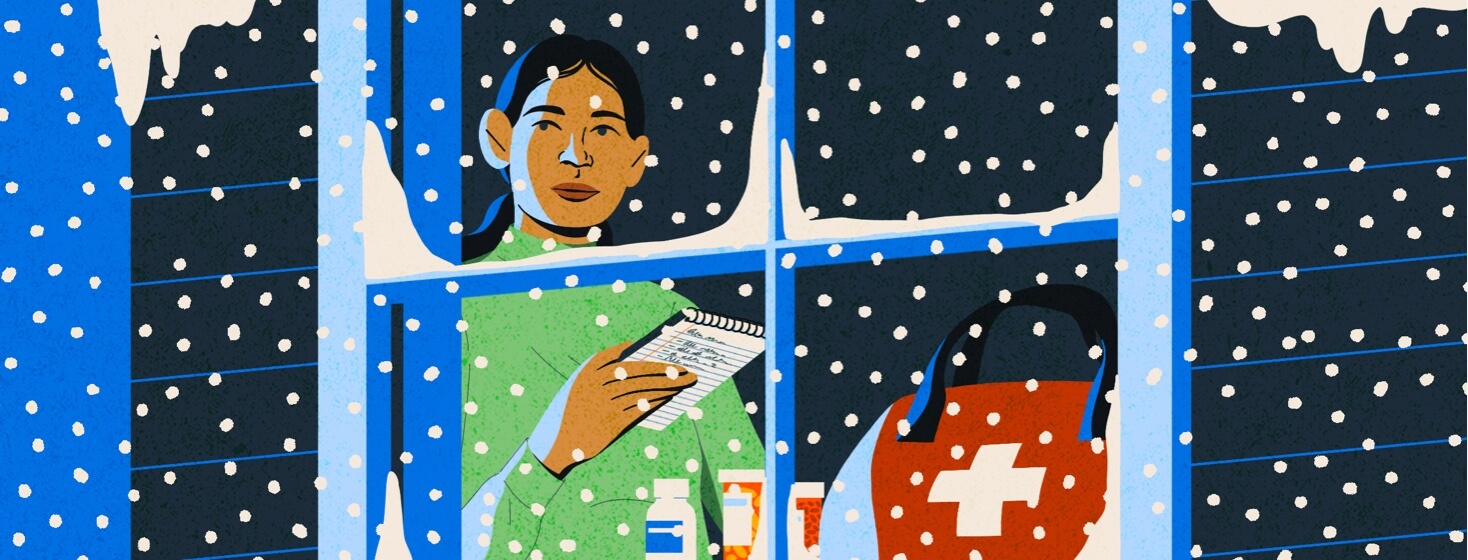PLC: Preparing for Inclement Weather
Most of us have faced an intrusion on our daily lives due to inclement weather. However, any change in weather conditions can affect many heart failure patients not only physically but mentally. For example, blood pressure, AFib, anxiety, tachycardia, and PTSD are a few of the conditions in heart failure patients that can be impacted by changes in weather. Having an inclement weather safety plan can help alleviate fears and possibly provide physical protection.
Day to day
Personally, I stay away from extreme heat due to how it affects my heart failure. I love the summer, but you will not find me outside participating in activities above certain temperatures or heat indexes. My symptoms range from lightheadedness and dizzy spells to shortness of breath in extreme heat. Although, the same can be said for cold temperatures.
Prior to the COVID pandemic, I wore masks during the winter months. I started noticing that I was becoming more fatigued and short of breath just walking from the car and into the store. It became necessary for me to cover my mouth and nose in colder temperatures. So, I started wearing face masks under my scarves and no one knew. Not that it should have mattered to me if they knew, but for some reason, it did back then.
What is inclement weather?
Growing up in the midwest I was used to snow, an occasional ice storm, or even blizzard. However, after moving to the south I realized not all communities are prepared for these conditions. Mostly because they're not the norm.
Merriam-Webster defines inclement as lacking mildness: such as a: physically severe or b: severe in temper or action. Most would agree that tropical storm winds, blizzards, and heat waves could each be considered severe physically and in action. These may cause unsafe conditions such as the loss of electricity due to down power lines or grids. So what are ways to prepare for this? 1
Community support
Coming from the midwest my utility provider offered a "Priority List" for customers with certain medical conditions. They not only took steps to protect those individuals from disconnection, but they also alerted them to potential inclement weather and ensured they were high on the priority list to restore services in the event of power outages.
Recently, I experienced a first in Georgia. While cleaning and preparing for a cold front headed our way I noticed a local EMS truck parked outside. I knew a neighbor was going through physical therapy and assumed it was for them. Moments later there was a knock at my door. I was told they were looking for an LVAD patient. The Community EMT was going to every known LVAD patient throughout the county to ensure they were aware of the impending storm, had charged batteries, and had a backup plan. They made us aware of a local warming shelter and were just checking to make sure we were ok and didn't need anything.
This was next-level community support for me. This was an example of why people move to small towns and the south if you ask me.
Inclement weather safety plans for people with heart failure
Every patient can benefit from having an Inclement Weather Safety Plan. As an LVAD patient, I'm also power dependent. Power dependent means I need an energy source to live. So a safety plan is also a necessity for me and others such as myself. Here's a look at my inclement weather safety plan.
My inclement weather safety plan/checklist
- Local utility provider priority list
- Backup housing plan (family or friends)
- List/location cooling and warming shelters
- List/location storm shelters
- Home generator
- Medications
- Portable medical equipment
- Emergency contact list (family and physicians)
Do you have an Inclement Weather Plan or checklist? What does that look like for you?
Tina Marie ~ Pretty Lady Chronicles

Join the conversation